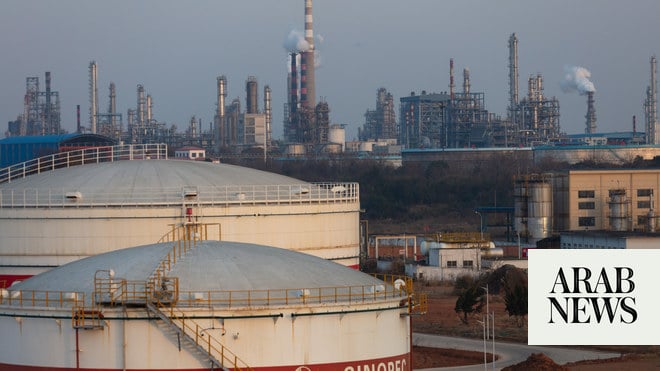
Demand for refined oil products will peak in 2036
Energy transition has "accelerated" during Covid-19, says IHS Markit
Demand for refined oil is set to be lower in 2050 than it was in 2019 as consumers move away from fossil fuels, according to a new projection by US-based analytics company IHS Markit.
The organisation has for the first time adopted a base case scenario which will see consumption of global refined products - such as gasoline, jet fuel, diesel, fuel oils, and biofuels - fall compared to pre-pandemic levels.
In the scenario, demand for refined products will peak in 2036, growing by nearly 9 MMbd. It is then expected to decline by more than 5 MMbd to 2050 - to a total of 85.5 MMbd -, placing it below 2019 baseline levels.
Ads by optAd360
Sandeep Sayal, vice president, oil markets and downstream refining at IHS Markit said energy transition has "accelerated" during Covid-19, due to consumer habits and a greater sense of urgency around climate change putting pressure on governments to offer financial backing for the decarbonisation of the industry.
Sayal said: “The new IHS Markit base case scenario is ambitious in terms of acknowledging energy transition goals.
“But it reflects a pragmatic and plausible approach to the implementation and timing of those goals, one that factors in economic recovery and demand growth in the medium term before there is a peak.”
He added: “However, some of the more accelerated scenarios that envision net zero emissions and dramatically lower oil demand stretch the limits of what is technologically and politically feasible and remain outside of the base case.”
Under the scenario, IHS Markit expects all sectors to be affected by the gradual dilution of the role that the traditional refinery plays in energy production as demand for fossil fuels lessens.
Road transportation will be impacted with more stringent fuel economy standards, as well as an anticipated increase in plug-in electric vehicle penetration (percent of on-road fleet) from less than one percent of the global on-road fleet today to above 44 percent by 2050.
Ads by optAd360
In the marine sector, alternatives such as hydrogen and ammonia will reduce the share of traditional marine gasoil and heavy fuel oils to below 60p percent.
Biofuels blends will also penetrate demand sectors outside of motor fuels, reaching 15 percent of global jet fuel demand by 2050.
“This shift is already being reflected in supply-side investment,” said Sayal. “Refiners will have more diversified investment portfolios as product suppliers seek low-carbon solutions to meet overall demand.”
The findings are the product of the Refining and Product Markets Annual Strategic Workbook and are part of the research that form the crude oil, refined products, NGL and downstream outlook for the 2021 IHS Markit Energy and Climate Scenarios.
Prepared annually, the IHS Markit Energy and Climate Scenarios include three plausible and integrated long-term energy scenarios to 2050, built by country and sector using experts from across the IHS Markit economics, energy, automotive, agriculture, life sciences and maritime divisions.










